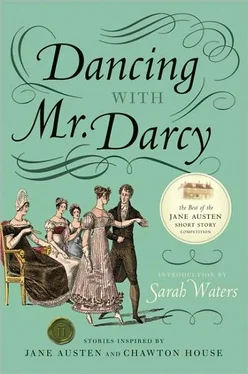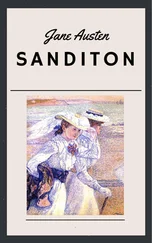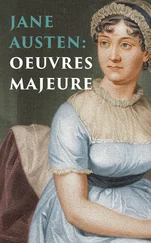The love and appreciation of Austen’s works is evident in the stories collected here. I applaud the winner, Victoria Owens, for having something critical to say, something that goes beyond cap doffing.
So here they are – twenty stories inspired by Jane Austen or Chawton House Library. Let the love affair continue.
Rebecca Smith
June, 2009
Jane Austen over the Styx
Victoria Owens
Travelling to the infernal regions was easy. True, the ferry leaked and the water seeping in through the planks of the hull was dark and cold, but remembering the hardships her brothers must endure in the navy, Jane decided to make light of it. Anyway, she did not think the ferryman would pay much heed to the remonstrations of a lone passenger like herself.
When she reached her destination and disembarked, the long terraces laid out upon the slope above the fiery lake put her in mind of Bath. The climate of the place was mild and the prospect of the distant hills pleasing. Provided that the society was pleasant she could, she thought, reside here with much happiness.
Before she could settle she had, like all mortals, to answer the charges brought against her in the court of the dead. Entering the half-timbered courthouse and making herself known to the phantasmal usher who greeted her, she reminded herself that she was hardly likely to find herself acquitted on all counts. There was no denying her life had had its faults: that tendency to be sharp, especially with her mother; the occasional fruitless burst of resentment at the good fortune of others; and of course that wretched business when she had accepted Mr Bigg-Wither’s proposal of marriage only to change her mind twelve hours later. True the two of them would never have fadged, but it might have caused him less hurt if she had been plain from the outset. On the other hand, she was no Medea, nor Lucrezia Borgia, nor yet adulterous Lady Coventry. She had lived within her means and although she had sometimes been short with her family, in truth she loved them well. Had she not taken every care of her sickly mother, even when they both knew the sickness had no existence whatever outside the patient’s fertile fancy?
The usher led her into an oak-panelled room with a gallery at one end and a low dais at the other, on which sat the three austere gentlemen who made up death’s tribunal. For a second, she stood quite still, amazed to see how much the exercise of eternal justice resembled the workings of English law – one of those three presiding judges had even extracted a large bone snuffbox from the folds of his gown and was offering it to his companions before helping himself to a liberal pinch. The sight comforted her; she knew several snuff-taking gentlemen and found them in the main genial and warm-hearted. What had she to fear?
Fingers, bony and cold through her woollen gown, pushed her in the small of the back. The spectral usher was thrusting her with no great civility towards the dock. Disliking his prodding, she entered it at once. The wooden surround reached almost to the level of her eyes – she was not a tall woman – and she found herself surveying the courtroom from behind a row of iron spikes. Her confidence began to sink. In this setting, everything must point to her guilt before the hearing began. But guilt upon what charge? What indictment did she face? Deliberately she stared across the court to get the measure of the prosecution.
Where she had expected to meet her mother’s acid eye, deep-set in the folds of her face, or hear poor, good Harris Bigg-Wither stammer out his grievance, instead she beheld no fewer than six women. Theirs were not faces of women whom she remembered from her childhood in Steventon, nor yet from the Chawton years, and she did not think they belonged to Bath. At the same time, she knew she had seen these fighting chins before. Musing, the truth dawned. The prosecuting counsel were her own creations – Mrs Bennet, Lady Catherine de Bourgh, Mrs Ferrars, Mrs Churchill, Lady Russell and Mrs Norris, whose sharp elbows had thrust her to the fore.
A black-clad clerk rose from his seat at the foot of the dais.
‘Prisoner in the dock, what is your name?’
‘Jane Austen, sir,’ said Jane crisply.
‘Kindly address your replies to the bench, ma’am. Well, these ladies,’ he nodded to the prosecution, ‘have summoned you here to answer a serious charge: namely, that you, Jane Austen between the years 1775 and 1817 did maliciously undercut the respect due from youth to age, in that when you created female characters of advanced years, you wilfully portrayed every one of them as a snob, a scold, or a harpy who selfishly or manipulatively interferes with the happiness of an innocent third party. Do you plead guilty or not guilty?’
She was by inclination truthful – in death as in life, but to give an honest answer was unthinkable. At the same time, the thought of having to lie brought on a rush of confusion. Now, as they stared down at her, their faces inert and colourless, the judges no longer looked so benign. What sentence might they pronounce? Prison? One of her aunts had gone to prison for stealing a piece of lace, and a miserable time she had had of it. That had been in Somerset. Although this place appeared orderly, she did not think its prisons would be as comfortable as those of Somerset, nor yet so civilised.
‘Not guilty,’ she replied.
‘Counsel for the prosecution,’ the clerk glanced at the terse old women, ‘outline your case if you please.’
There was a brief babble, an altercation involving Lady Catherine, and then the mistress of Rosings deflated unsteadily upon an upright chair and Mrs Norris, adjusting her bonnet, stepped forward.
‘Your honours, the facts of the case are simple. The issue is that nowhere in her clever books does the irresponsible female in the dock portray elderly women in any true light of kindness.
‘Look at us. Here is Mrs Bennet who always worked hard for her daughters but who emerges in Miss Austen’s writing as foolish and noisy; devoted Mrs Ferrars is made to look grasping, her friend Mrs Churchill self-absorbed and demanding. The worthy Lady Catherine, so interested in young people’s welfare and so conscientious in setting their feet upon the right path through life, she presents as misguided and supercilious. She would have us believe that even beneficent Lady Russell cared less for her goddaughter’s happiness than for her own. There, your honours, would I rest my case, except that I cannot forbear to remind you that my creator has the temerity to suggest that the true devotion I showed my niece Fanny Price – making her aware of her lowly station, impressing upon her the virtue of frugality, reminding her of every Christian’s call to humility – was no more than crabbed meanness. Here is pure malice. And she directs all her hostility to women who are old. Female kindness and liberality, according to Miss Austen, are youth’s province alone.’
‘Your evidence?’ enquired the judge on the left-hand side.
‘In these wretched books,’ Mrs Norris asserted, producing the familiar volumes from her reticule and holding them at a distance from her face as though the pages gave off a bad smell. ‘For youth, Miss Austen makes every allowance. Her young women – Elizabeth, Elinor, Catherine and all – have ready charm. Anne Elliot, who is not old so much as faded, proves wiser than her father. The benevolence Emma Woodhouse shows her father counterpoises her impudence and arrogance. Mary Crawford may flirt where she should preserve decorum and speak lightly where she should be reverent, but Miss Austen tempers her impropriety by indicating the kindly fellow feeling she bears both towards her sister and, on occasion, to Fanny.
Читать дальше












